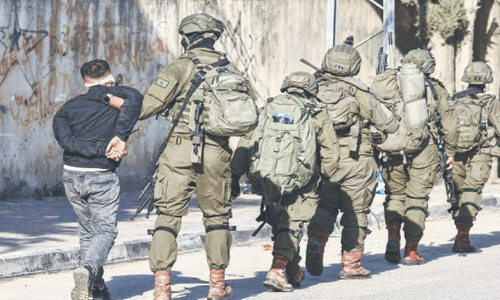ISLAMABAD: The Supreme Court has upheld the death sentence awarded to Malik Mohammad Mumtaz Qadri — the Elite Force commando who assassinated former Punjab governor Salmaan Taseer — by an anti-terrorism court in Oct 2011.
“The criminal appeal filed by the convict is dismissed, the appeal of the state is allowed and the conviction and sentence awarded by the trial court is restored,” said a short order announced by Justice Asif Saeed Khosa on Wednesday.
The apex court was hearing two appeals, one moved by Advocate Mian Nazir Akhtar on behalf of Qadri, and the other by the federal government, challenging an IHC verdict that struck down sections of the Anti-Terrorism Act (ATA) from the charges against Qadri.
The acceptance of the state appeal means that the Supreme Court has partially overturned the IHC verdict that removed Section 7 of the ATA, which asks for capital punishment for acts of terrorism. The court, however, had upheld the death sentence awarded to the convict under the Pakistan Penal Code (PPC).
Verdict welcomed by civil society, criticised by religious parties
With charges under the ATA restored, Qadri has lost the chance of having his death sentence commuted or converted into life imprisonment. He will also not be able to escape punishment by striking a deal with the legal heirs of the victim’s family, a senior lawyer explained on condition of anonymity.
A death sentence awarded under the PPC can be commuted, subject to the approval of a court, if the heirs of the victim pardon the convict even after the pronouncement of a final decision by the court.
However, the verdict drew a sharp reaction from Sunni Tehreek (ST) chief Sarwat Ijaz Qadri, who declared the Supreme Court judgment “against the spirit of both Shariah and the Constitution”.
In a statement, the ST chief announced his intention to move the apex court again by seeking a review of the judgment, adding that whatever Mumtaz Qadri did was a true reflection of his religious faith.
By deleting provisions of the ATA, he explained, the high court had accepted Mumtaz Qadri’s plea that he was not a terrorist.
He said that ST had called an urgent meeting of its ulema board to consider the judgment in detail and chalk out a future line of action, but the date for this meeting had not yet been decided.
On the other hand, rights activist Asma Jahangir said the judgment showed maturity among judges who had decided the matter at hand without being influenced by external pressure.
The Supreme Court did what the law says, since the death penalty exists in Pakistan, she said, adding that in principle she was against capital punishment.
Arguing before the court, Mumtaz Qadri’s counsel Mian Nazir Akhtar pleaded for a reduced punishment since, he said, the convict had no personal enmity with the victim.
Former Lahore High Court chief justice Khawaja Sharif, who is also counsel for the accused, referred to the FIR and explained that its contents should not lead to capital punishment. The convict did not murder the governor in a premeditated manner, in which case he would have also killed other people there. He specifically targeted the governor because there was an element of sudden and gravest provocation, Mr Sharif said.
However, Islamabad Advocate General Mian Abdul Rauf argued that the assassin’s confession had established the offence, which clearly suggested that it was a case of terrorism.
During Wednesday’s proceedings, Justice Khosa observed that the court was considering launching a campaign to curb the culture of deposing false witnesses before the courts by awarding life sentences to those who rendered false witness.
The observation came when Nazir Akhtar suggested to the court that blasphemy cases should be referred to the Islami Milli Yakjheti Council, a body that consists of Islamic jurists, which should award the maximum punishment to complainants if allegations of blasphemy are subsequently proved to be false.
Published in Dawn, October 8th, 2015
On a mobile phone? Get the Dawn Mobile App: Apple Store | Google Play

































